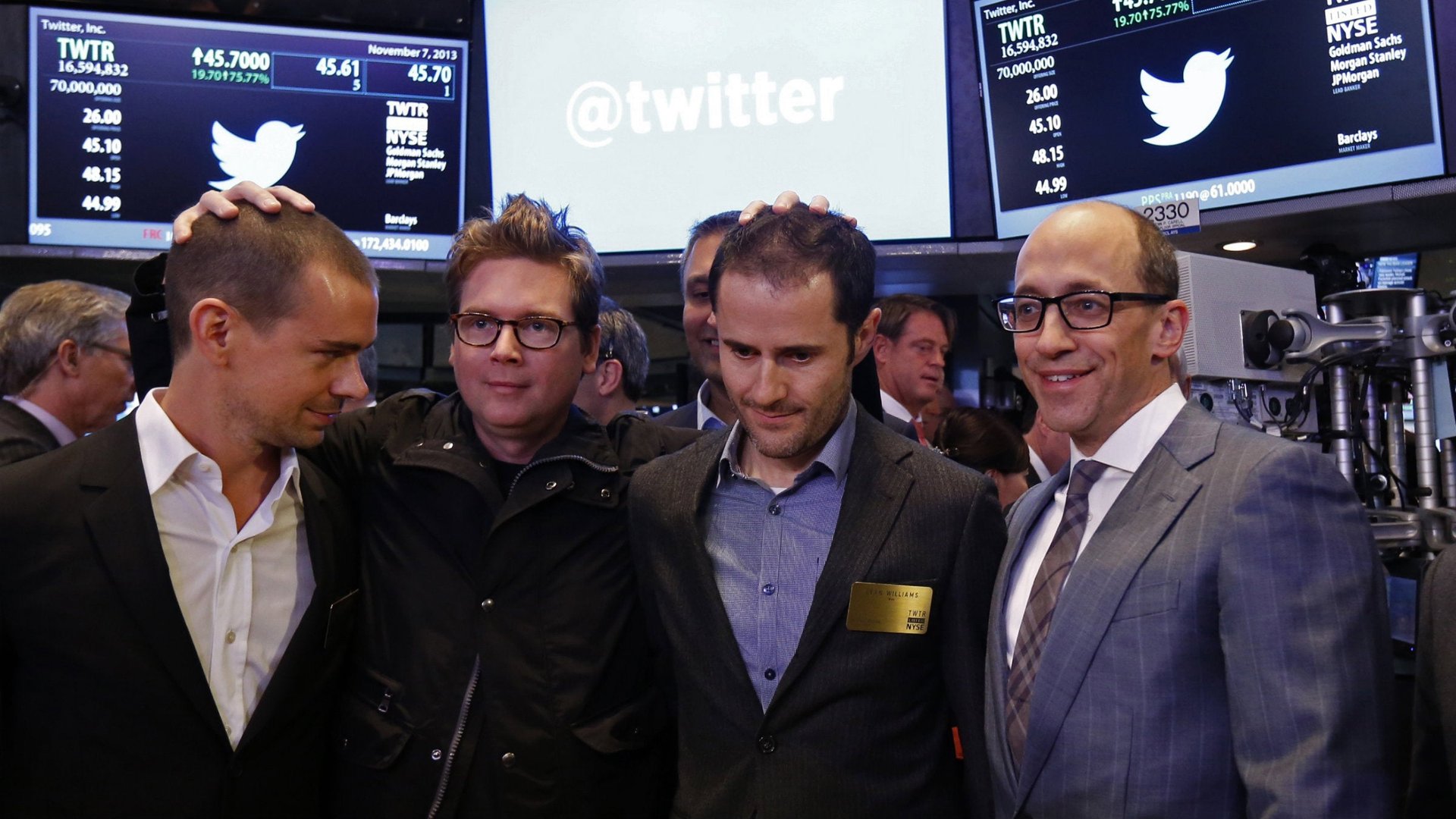Why Twitter’s IPO will actually make it harder for the company to go on a startup-buying binge
Now that its endlessly-dissected IPO is out of the way, Twitter has everyone wondering what it’s going to do with its $2 billion pile of cash. Understandably, it’s creating a bit of a buzz in Silicon Valley, where expectations are building that Twitter will begin gobbling up startups to help satisfy Wall Street’s desire for growth.


Now that its endlessly-dissected IPO is out of the way, Twitter has everyone wondering what it’s going to do with its $2 billion pile of cash. Understandably, it’s creating a bit of a buzz in Silicon Valley, where expectations are building that Twitter will begin gobbling up startups to help satisfy Wall Street’s desire for growth.
There’s nothing unusual about this kind of move: in fact, it’s extremely normal for cashed-up companies, in tech and other sectors, to go on the hunt for deals following an IPO. But, oddly enough, it may now be a bit more difficult for Twitter to follow this well-trodden path.
For starters, in a market like this, $2 billion is not that much to play with. Startups like Snapchat and Pinterest are attracting valuations close to $4 billion, while they are generating negligible sales, let alone profits. Even if Twitter’s not expected to shell out that much (its recent acquisition of advertising company MoPub is probably a better yardstick), this kind of euphoria doesn’t bode well for finding bargains.
The IPO proceeds will also be put to good use inside Twitter, rather than outside of the company: The final IPO prospectus (p. 53) says Twitter expects to face a capital expenditure bill between $215 million and $235 million next year. Facebook went on a similar capital-spending spree following its IPO, sinking huge sums into its infrastructure (new servers, data centers, and network equipment) to support the growth of its platform.
The prospectus also points out that Twitter could face a bill of around $113.8 million for taxes on restricted stock units that it awarded to employees. Finally, don’t forget, Twitter lost $65 million last quarter, and if it keeps losing money, this will also need to be funded.
All of this means that if Twitter does want to buy other companies, it will most likely have to use its stock as a currency to pay for them, which, again, is a completely normal thing that companies do. But with its share price looking extremely lofty, convincing entrepreneurs to accept Twitter shares, rather than cash, suddenly became a harder pitch.
Of course, Twitter could go out and buy something that was making money to boost its overall earnings, but most startups aren’t, and buying them is usually about getting hold of new capability, not profits. We and others have already expressed concerns about an avalanche of new Twitter shares hitting the market, and that’s as things currently stand. Issuing more stock to buy another loss-making business would only exacerbate the problem.